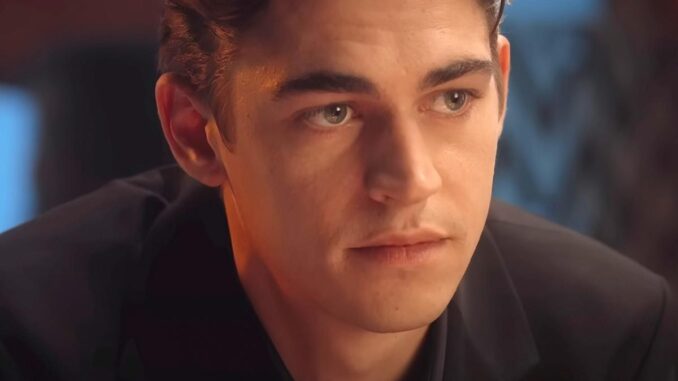
After Everything (2023): A Complete Breakdown of Hardin and Tessa's Love Story's Denouement
The "After" saga, with its tempestuous portrayal of Hardin Scott and Tessa Young's love, has always existed on a spectrum between intoxicating passion and self-destructive codependency. After Everything (2023), the presumed final chapter, doesn't just aim to tie up loose ends; it attempts to perform a surgical breakdown of their love, dissecting its flaws and reconstructing it into something ostensibly more mature and sustainable. This film pivots away from the relentless cycle of melodrama that defined its predecessors, instead focusing on Hardin's individual journey of atonement, presenting Tessa less as an active participant in his chaos and more as the ultimate, distant beacon of his potential for redemption.
At the outset of After Everything, Hardin is not merely heartbroken; he is broken. His much-anticipated novel, "After," has been published, but the public reception is critical, particularly regarding his exploitative use of real-life events and the pain he inflicted on others, especially Tessa. He is creatively paralyzed, depressed, and isolated in London, caught in a self-made purgatory. This is the crucial first step in the film's breakdown of their love: it acknowledges that the toxicity of their relationship has finally rendered Hardin incapable of functioning. Tessa's absence isn't another dramatic "break-up" in a long line; it's a consequence, a void that Hardin must fill not with her, but with a foundational sense of self-worth. Her brief, distant appearances and letters serve as reminders of what he's lost, but crucially, she is not present to rescue him. His struggle, for the first time, is entirely his own.
The narrative thrust then shifts to Hardin's journey to Portugal, a pilgrimage not of romantic pursuit, but of self-flagellation and, eventually, atonement. He seeks out Natalie, one of his past victims, to apologize for his callous behavior. This arc is the heart of After Everything's redefinition of his love for Tessa. By confronting his past, owning his mistakes, and seeking genuine forgiveness from others, Hardin begins the arduous process of rebuilding himself. His interactions with Natalie and other characters are not flirtatious detours but crucial steps in an internal detox. He learns to apologize without expectation, to accept rejection, and to confront the ugliness he once embodied. This transformation is pivotal because, for so long, Hardin sought to "fix" himself for Tessa. Here, he is forced to do it for himself, recognizing that true love cannot blossom from a diseased core.
Tessa, in this final installment, becomes less of a character and more of an ideal. She represents the healthy, stable future Hardin yearns for, but which he knows he must earn. Her brief appearances are marked by a quiet strength and a clear boundary: she loves him, but she will not re-enter the maelstrom until he has truly changed. Her wisdom, often expressed in his internal monologues or through the occasional letter, guides him without dictating his path. The film deliberately keeps them apart for the majority of its runtime, emphasizing that the "breakdown" of their old dynamic necessitates individual healing before any potential "breakthrough" as a couple. This distance allows their love to shed its most destructive elements, forcing it to evolve beyond volatile passion into something rooted in mutual respect and individual wholeness.
The eventual reunion and conclusion of After Everything are remarkably subdued compared to the fireworks of previous films. There is no grand declaration, no dramatic chase. Instead, it's a quiet, understated affirmation. Hardin returns a changed man, having found peace and a renewed purpose in writing honestly and transparently about his struggles. He approaches Tessa not with the desperate neediness of old, but with a humble self-assurance. Their eventual wedding and domestic bliss are presented as the earned reward for Hardin's arduous journey, a testament to a love that has been stripped bare, examined for its flaws, and meticulously rebuilt. It's a love no longer characterized by its ability to withstand chaos, but by its capacity for growth, forgiveness, and the quiet joy of shared, mature partnership.
In essence, After Everything performs a complete breakdown of Hardin and Tessa's love story by first breaking down Hardin himself. It argues that their prior love, no matter how passionate, was fundamentally flawed because Hardin was fundamentally broken. The film's conclusion isn't a magical fix but a deliberate, hard-won resolution, positing that true, enduring love isn't about two halves making a whole, but two whole individuals choosing to build a life together. It attempts to redefine "Hessa" from a symbol of tumultuous romance to one of redemptive personal growth, ultimately suggesting that sometimes, to save a love, one must first learn to love oneself.
